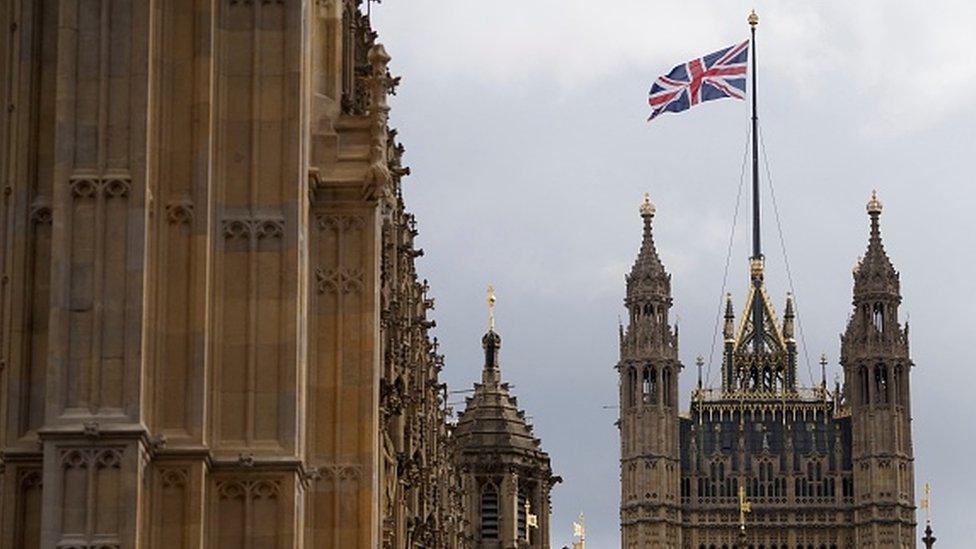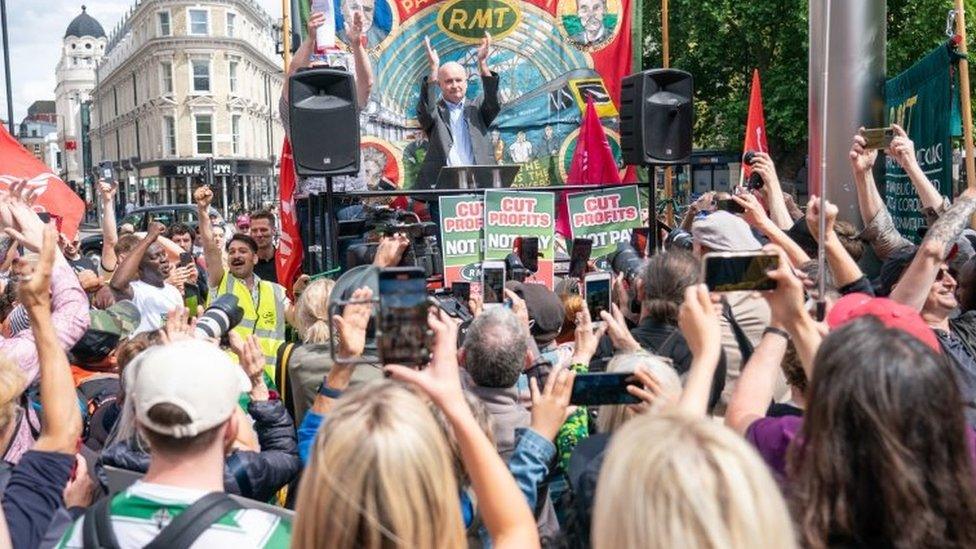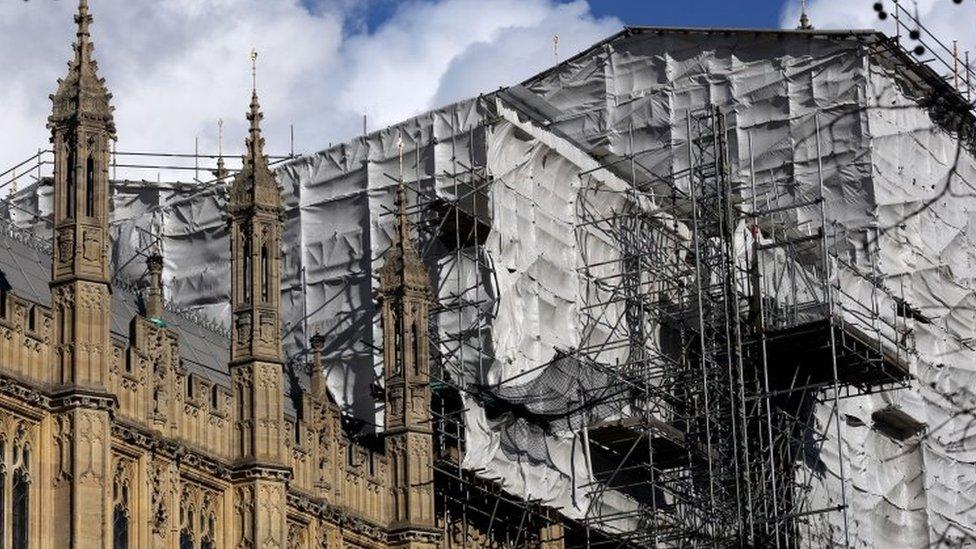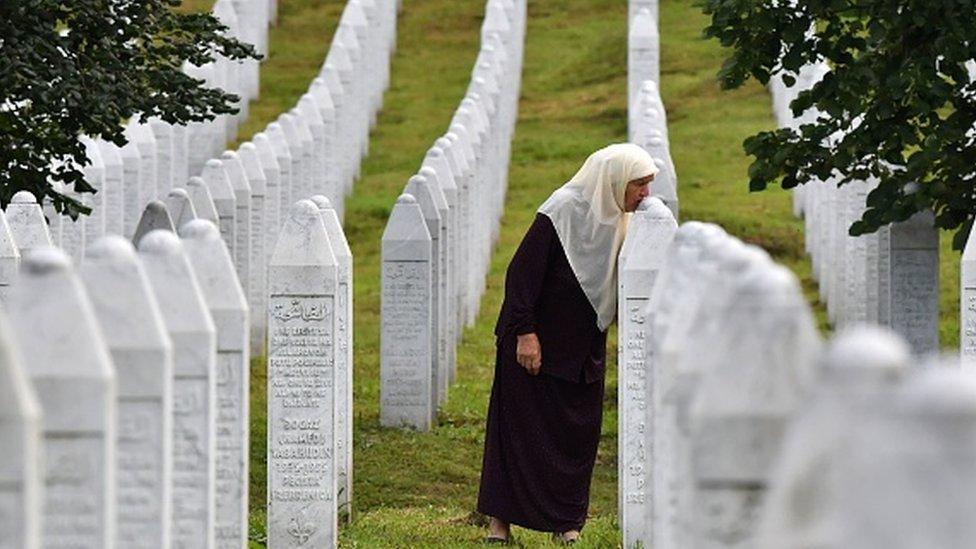What's happening in Parliament next week?
- Published

Even before the fall of Prime Minister Boris Johnson, this looked like a pretty bumpy week in the House of Commons with some difficult legislation due for detailed scrutiny.
Now there's a new set of ministers dealing with much of it and a leadership contest under way, with intense scrutiny on candidates declared and undeclared.
There will also be a new vibe at Prime Minister's Questions as the newly cleared Labour leader Sir Keir Starmer squares up to continuity PM Boris Johnson, perhaps with some putative successors to the Tory crown trying to muscle in on the action.
Labour are planning to put down a motion of no confidence in the government to try to push Mr Johnson out immediately.
They argue he should not be performing the normal transition role until a new PM is chosen - a process expected to take several weeks, even if the timings are telescoped a bit. But the motion won't pass unless a fair number of Conservatives support it, which looks unlikely.
Windfall tax
Monday's main action is the rushing through of all stages of the Energy (Oil and Gas) Profits Levy Bill - also known as the windfall tax. There are already some clues about the kind of amendments opposition MPs might attempt to pass.
The Liberal Democrats want the levy backdated to October 24 2021, the Green MP Caroline Lucas wants the rate set at 30%, and Labour's Dan Carden wants a rate of 55% on above-average profits.

Rail workers went on strike over pay and conditions in June
And watch out too for a spat around the snappily titled: "Debate on motions relating to the liability of trade unions in proceedings in Tort (Increase of limits on damages) Order, and the Conduct of Employment Agencies and Employment Businesses (Amendment) Regulations".
This may sound very technical, but it's about allowing agency staff to take the place of striking rail workers.
Online safety
Tuesday's main event will be the first of two days of report stage consideration of the Online Safety Bill (the second day is July 20). The former digital minister Chris Philp, who resigned in the recent convulsions, will not now be batting for the government, after months honing the bill into its current form.
His replacement is Matt Warman, a former Department for Digital, Culture, Media and Sport minister who was in charge of earlier incarnations of the bill, which is just as well because its proposals are so complex and ground-breaking that ministers can't just read themselves into it over a weekend.
And when you add in the point that many of the issues and proposed amendments cut across party lines, at a time when Conservative party discipline is weak, there's a very real prospect of amendments being passed in the teeth of government opposition.
And there are plenty of them - watch out for Margaret Hodge on making directors of online platforms personally liable for harmful content; she argues that is the most effective way to push them into action.
Veteran Tory David Davis is pushing an amendment on "legal but harmful" content, and Digital, Culture, Media and Sport Committee Chair Julian Knight wants to reduce ministers' power over the codes of conduct, which will designate what is and is not harmful content.
That is followed by a debate on the restoration and renewal of the Palace of Westminster, the multi-billion pound revamp of Parliament's Victorian home.
Commons Leader Mark Spencer wants to scrap the "sponsor body" which was set up to oversee the project on behalf of Parliament. But opponents warn this will further delay already overdue works, and increase the risk of a catastrophic fire or other disaster.

An expensive restoration of the Houses of Parliament is under way
It's not a done deal that the plans will go through on the nod (as House business, they're not supposed to be whipped) and I'm told interest in the issue is rising - as demonstrated by an uptick in MPs asking for a tour of Parliament's basement, which is a pipe-choked, wiring-strewn danger zone.
In other times,this might be a more fraught debate, but at the moment I doubt most MPs have the headspace, especially at the fag-end of a torpid Commons Tuesday.
NI Protocol
On Wednesday, the main Commons debate will be on committee consideration of the NI Protocol Bill (this is the first of three days of detailed debate, which continue on July 18 and 19).
Justice Select Committee Chair Sir Bob Neill is proposing a classic Brexit-era amendment to require parliamentary approval for bringing the legislation into force, on the basis that it grants ministers extraordinary powers.
The SDLP's Colum Eastwood and Claire Hanna want those powers exercised "only after good faith negotiations with the EU have been exhausted and only with the approval of both Houses of Parliament". And there's a further amendment on the role of the Northern Ireland Assembly backed by the SDLP, the Lib Dems and the Alliance Party.
Educational poverty
Thursday sees Education Select Committee Chair Robert Halfon deliver a short statement on his committee's latest report - Educational poverty: how children in residential care have been let down and what to do about it. He will have a few minutes to take questions from MPs.
Then the main debates are on two subjects chosen by the Backbench Business Committee - the Srebrenica genocide, and protecting and restoring nature at the UN Biodiversity conference, COP15, which opens in China in October.

A debate on the Srebrenica genocide will be held on Thursday
Commons private members bills are back (from 09:30) on Friday, starting with the second reading of SNP's Stuart C McDonald's Neonatal Care (Leave and Pay) Bill, followed by the Conservative Dean Russell's Employment (Allocation of Tips) Bill.
Committees
The week's committee action includes Transport calling in RMT leader Mick Lynch to talk about rail strikes and the prospects for negotiations with the train operating companies and Network Rail. He'll be followed by rail company negotiators (Wednesday 09:30).
Home Secretary Priti Patel will be before Home Affairs to talk about public confidence in policing, violence against women and girls, drugs policy, Windrush and Home Office culture, asylum and immigration, and problems at the Passport Office (Wednesday 10:00).
Treasury will question Bank of England Governor Andrew Bailey on the UK's economic outlook (Monday 15:15).
Former Prime Minister Sir John Major is before Public Administration and Constitutional Affairs to talk about standards in public life (Tuesday 11:00).
Health and Social Care quizzes Patient Safety and Primary Care Minister Maria Caulfield in the final session of its inquiry into the future of general practice (Tuesday 11:05).
Lords
Lords action looks pretty humdrum, but keep an eye on the first report stage debate on the Schools Bill (Tuesday).
Education Minister Baroness Barran was forced to promise extensive changes after a cross-party alliance of peers made it clear they were very unhappy about proposed new powers over the running of academies, among other issues.
On Friday, there's another set of private members bills - laws proposed by individual peers.
The list includes the second readings of the Domestic Premises (Electrical Safety Certificate) Bill from the Lib Dem Lord Foster of Bath, the Healthy Homes Bill from the crossbencher or independent peer Lord Crisp, and the Lib Dem Lord Redesdale's Climate and Ecology Bill.
